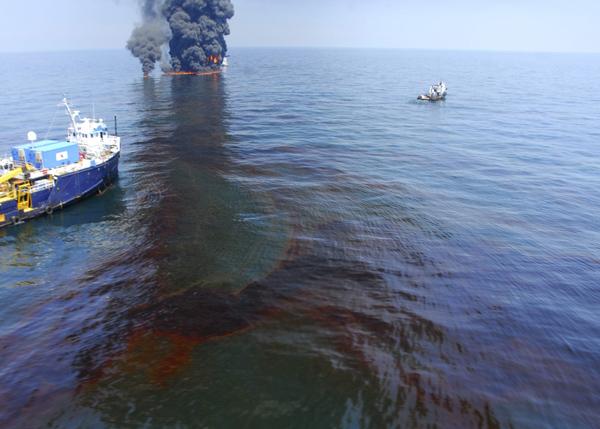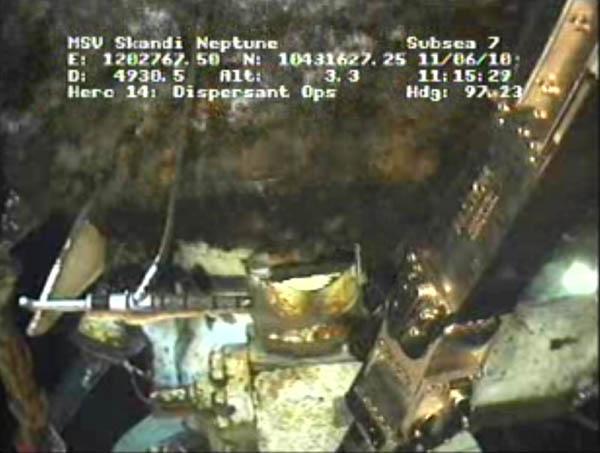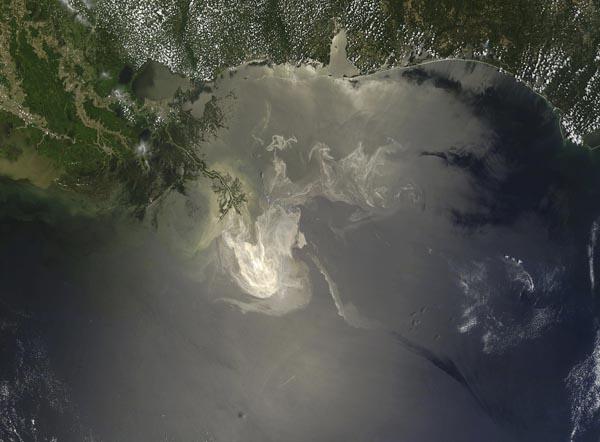Chinese and U.S. researchers have discovered a new strain of bacteria that can help cleanup of the massive Gulf Coast oil spill, it was announced on Friday.
 |
| The Premier Explorer of Venice, Louisiana stands by near a controlled burn of spilled oil off the Louisiana coast in the Gulf of Mexico, in this handout photograph taken June 9, 2010 and released on June 11. (Xinhua/Reuters Photo) |
Because of its unique characteristics, this new bacterial strain could be of considerable value in the long-term cleanup of the massive Gulf Coast oil spill, said the release.
The discovery was made by researchers from OSU and two collaborating universities in China -- the Xi'an University of Architecture and Technology and Nanjing Agricultural University. The OSU is filing for a patent on the discovery.
"PAHs are a widespread group of toxic, carcinogenic and mutagenic compounds, but also one of the biggest concerns about oil spills," said Xihou Yin, a research assistant professor in the OSU College of Pharmacy.
"Some of the most toxic aspects of oil to fish, wildlife and humans are from PAHs," Yin said. "They can cause cancer, suppress immune system function, cause reproductive problems, nervous system effects and other health issues. This particular strain of bacteria appears to break up and degrade PAHs better than other approaches we have available."
 |
| Leaking oil and gas are seen during dispersant operations at the site of the Deepwater Horizon oil spill in the Gulf of Mexico, in this screen grab taken from a BP live video feed June 11, 2010. Britain stuck up for beleaguered BP Plc on Friday against American criticism over the massive oil spill that U.S. scientists said was far bigger than previously thought. (Xinhua/Reuters Photo) |
The discovery is strain "NY3" of a common bacteria that has been known of for decades, called Pseudomonas aeruginosa. It was isolated from a site in Shaanxi Province in China, where soils had been contaminated by oil.
Pseudomonas aeruginosa is widespread in the environment and can cause serious infections, but usually in people with health problems or compromised immune systems. However, some strains also have useful properties, including the ability to produce a group of "biosurfactants called rhamnolipids.
Although the type of biosurfactant called "rhamnolipids" have been used for many years, the newly discovered strain, NY3, stands out for some important reasons.
Researchers said in the new study that it has an "extraordinary capacity" to produce rhamnolipids that could help break down oil, and then degrade some of its most serious toxic compounds, the PAHs.
Rhamnolipids are not toxic to microbial flora, human beings and animals, and they are completely biodegradable. These are compelling advantages over their synthetic chemical counterparts made from petroleum. Even at a very low concentration, rhamnolipids could remarkably increase the mobility, solubility and bioavailability of PAHs, and strain NY3 of Pseudomonas aeruginosa has a strong capability of then degrading and decontaminating the PAHs.
"The real bottleneck to replacing synthetic chemicals with biosurfactants like rhamnolipid is the high cost of production," Yin said. "Most of the strains of Pseudomonas aeruginosa now being used have a low yield of rhamnolipid. But strain NY3 has been optimized to produce a very high yield of 12 grams per liter, from initial production levels of 20 milligrams per liter."
 |
| NASA MODIS satellite image, taken May 23, 2010, of the Gulf of Mexico shows the extent of the oil released from the Deepwater Horizon spill. The oil can be seen as a sheen on the water surface. BP was weighing whether to stick with the tricky "top kill" maneuver or try something else to plug the gushing well that has caused the worst oil spill in U.S. history, its chief operating officer Doug Suttles said on May 29, 2010. (Xinhua/Reuters Photo) |
The rhamnolipids produced by NY3 strain appear to be stable in a wide range of temperature, pH and salinity conditions, and strain NY3 aggressively and efficiently degrades at least five PAH compounds of concern, the study showed.
It's easy to grow and cultivate in many routine laboratory media, and might be available for commercial use in a fairly short time.
"Compared to their chemically synthesized counterparts, microbial surfactants show great potential for useful activity with less environmental risk," the researchers wrote in their report.
"The search for safe and efficient methods to remove environmental pollutants is a major impetus in the search for novel biosurfactant-producing and PAH-degrading microorganisms."
More research to further reduce costs and scale up production would be needed before its commercial use, the researchers added. (Xinhua)





